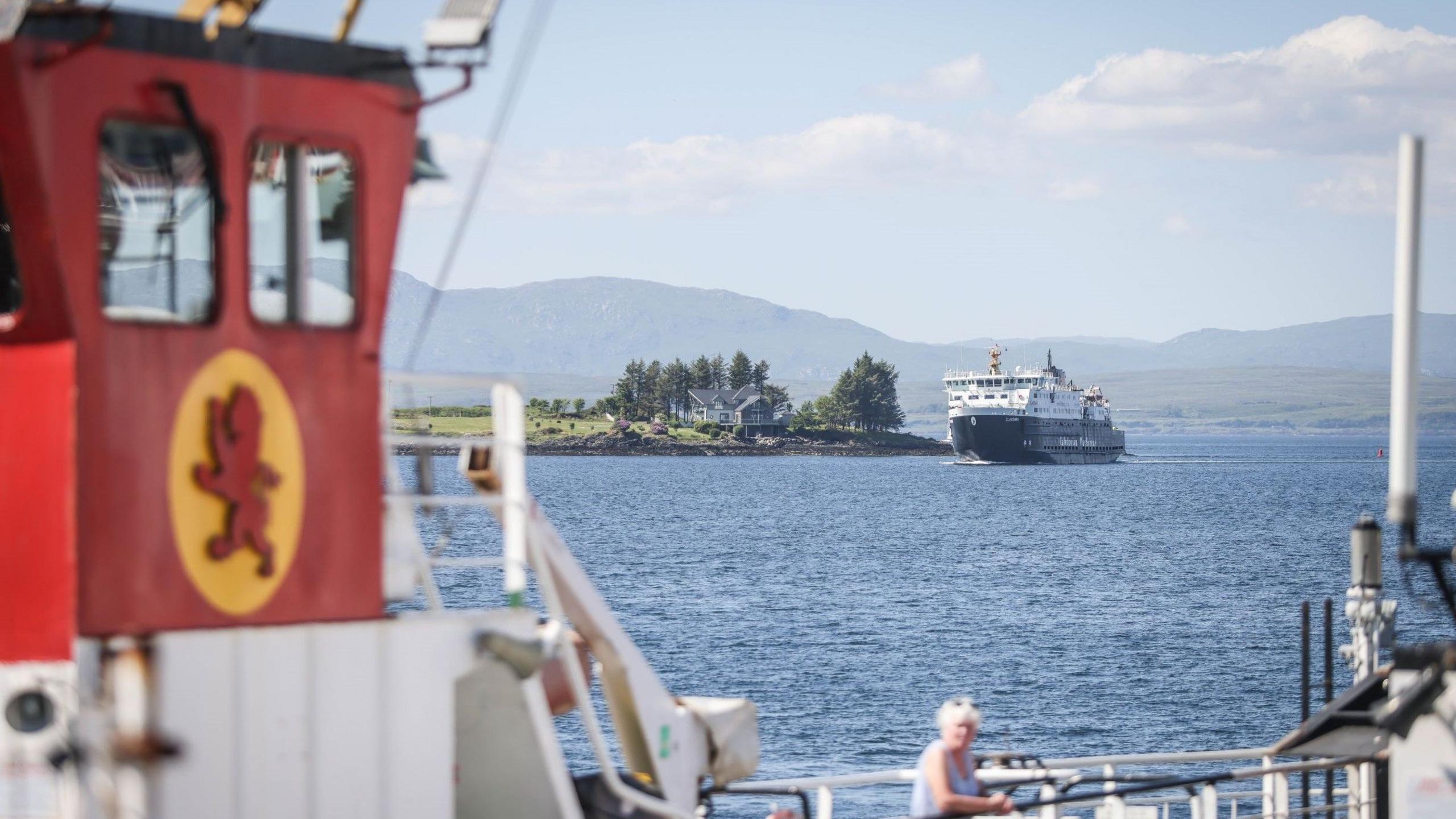Fire caused CalMac ferry engine failure
- Published
A small fire caused an engine failure on a west coast ferry and forced its crew to head for the nearest port, according to operator CalMac.
MV Lord of the Isles was on the Mallaig to Lochboisdale, South Uist, route on Tuesday, before it was diverted to Armadale on Skye.
CalMac said the small fire was extinguished quickly by the crew and no-one was hurt.
Sailings between Mallaig and Lochboisdale, have been cancelled for the rest of the week.
CalMac said it was investigating the failure which affected the main starboard engine.
Passengers were offered alternative travel arrangements.
Head of operations Finlay MacRae said: "This was a long night for our customers, and I apologise for the disruption caused to them.
"Their safety was our priority, and we made sure that everyone was spoken to individually so that our crew and port staff could make sure they had all the support they needed in terms of food, onward journeys, and accommodation."
A tug is to tow the ferry to a yard on the Clyde for repairs.
Ferry disruption
The fire comes against a backdrop of disruption to Calmac services.
Last week, MV Hebridean Isles was removed from service due to an issue with its bow thruster.
Islay's 38 year old ferry is to be retired later this year and replaced by new ferries.
Over the years it has required lengthy and costly repairs - including last year when it was out of action for 10 months.
Last week it also emerged the delivery of new ferry Glen Sannox had been further delayed.
The ship and another new vessel, Glen Rosa, were originally due for delivery in 2018 but have faced repeated design and construction challenges.
The bill for repairing and maintaining CalMac's ageing publicly-owned ferry fleet has almost trebled in the past five years, according to figures released last month.
A freedom of information request from the Scottish Liberal Democrats found the annual cost of fixing CalMac-run ferries in 2018-19 was about £15.5m.
Between 2022-23 the cost rose to £26.6m and by 2023-24 further increased to £41.2m.
Related topics
- Published31 July 2024
